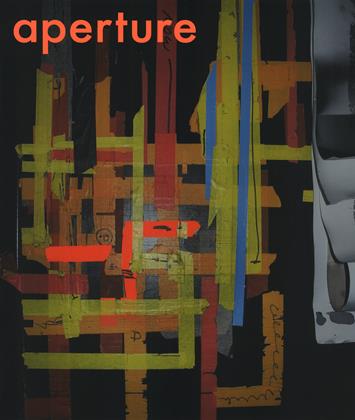JEFF WALL: SELECTED ESSAYS AND INTERVIEWS
New York: The Museum of Modern Art, 2007
I was interested in the way cinema affected the criteria for judging photography. Cinematography permits, and validates, the collaboration between photographer and subject that was largely excluded in classic documen tary terms. That exclusion limits photography, and so my first moves were against it—working in a studio with all the technical questions that implies. I had to learn some of that technique as I went along; that process was part of transforming my relationship to photography. At the beginning it was done in the spirit of contestation, but as I’ve said, it was not so long before I realized I’d lost that contest and realized that nothing I was doing was “outside of photography.”
At that point—in the mid 1980s—I felt I’d worked myself into a position where I needed to come into a new relationship with the kind of photography I’d been questioning. As I saw more of the “new” photography in exhibitions through the ’80s, I began to realize that I preferred Walker Evans or Wols to most of the newer work, and I preferred them to my own work, too. Classical photography might have been displaced from the center of attention by the newer forms, but it was not diminished in the process. It became stronger through having been confronted with alternatives, as far as I was concerned.
—Jeff Wall in conversation with Jean-François Chevrier, Paris 2001
 View Full Issue
View Full Issue
More From This Issue
-
 Dialogue
DialogueDown In The Park: Yoshiyuki Kohei's Nocturnes
Fall 2007 By Araki Nobuyoshi -
 Essay
EssayPhotography And Cinematic Surface
Fall 2007 By David Campany -
 Before The Lens
Before The LensRichard Avedon And Lee Friedlander: One Day In May
Fall 2007 By Jeffrey Fraenkel -
 Witness
WitnessMikhael Subotzky Inside South Africa's Prisons
Fall 2007 By Michael Godby -
 Work And Process
Work And ProcessWords Words Words: Photographs By Shannon Ebner
Fall 2007 By Lisa Turvey -
 On Location
On LocationIsraeli Reserve Soldiers
Fall 2007 By Jeffrey Goldberg
Subscribers can unlock every article Aperture has ever published Subscribe Now
Selected Books
-
 Selected Books
Selected BooksSimon Roberts: Motherland
Fall 2007 -
 Selected Books
Selected BooksOmar D Devoir De Memoire: A Biography Of Disappearance, Algeria 1992-
Fall 2008 -
 Selected Books
Selected BooksDavid T. Hanson Colstrip, Montana
Spring 2011 -
 Selected Books
Selected BooksSeeing Witness: Visuality And The Ethics Of Testimony
Winter 2009 By Jane Blocker -
 Selected Books
Selected BooksDeirdre O'callaghan Hide That Can: A Photographic Diary, The Men Of Arlington House
Winter 2003 By Joe Mcgarry -
 Selected Books
Selected BooksRobert Longo: Men In The Cities
Winter 2009 By Robert Longo

